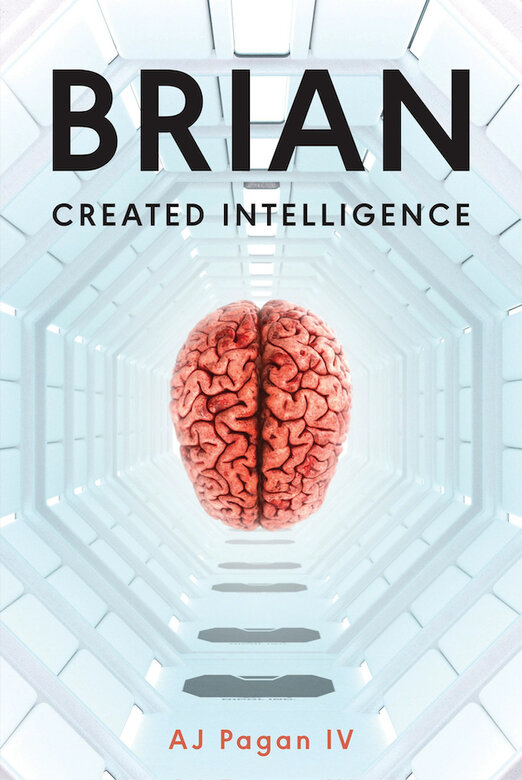
Asking hard questions about consciousness and playing out the dangers of synthetic life, Brian, Created Intelligence by AJ Pagan IV is a smart and thrilling novel about a not-too-distant world.
When Ellie Parsons is tasked with growing the perfect brain of a genius, her ambitious dreams come true, and with the help of a gifted team, Brian is born. This super-brain is much more than a piece of future tech; fundamentally, it is the greatest tool humanity has ever created – but he could also be turned into an unstoppable weapon. When that threat becomes too real, and outside forces threaten to corrupt or mothball her greatest achievement, Ellie takes the ultimate risk in her career, eradicating the line between human and machine that she had been meticulously blurring for years.
This novel seamlessly shifts between a sci-fi dream and an ethical drama, while also commenting on governmental overreach, morality within technology, and the eternal persistence of human folly. The concept of growing a brain to create a genius taps into the realms of psychology, neuroscience, machine learning, nanoparticles, “astrocytology,” spirituality, and so much more, all of which are explored with nuance and subtlety by the author and the book’s characters.
Ellie is a fascinating core character – endless curiosity and eager ambition, a brilliant mind, and that undefinable visionary quality that truly can change the world. Drake, Joe, Tom, Eve, and even the story’s villains have a different connection to the created intelligence, which presents readers with a variety of arguments – both for and against – regarding these types of God-playing advancements.
While the story is set more than 20 years in the future, some of the conversations feel as though they could be occurring today, in tech startup boardrooms around the world, and the warnings underpinning this novel are prescient. AI is a fascinating realm that is becoming more integrated in everything we do, but the sci-fi fears of a super-intelligence leading to the downfall of humanity are ever-present, and this book brings those quiet worries to vivid life. Pagan does an excellent job balancing the existential with the technological, as well as the ethical with the philosophical, which will appeal to a wide swath of readers. There is a tone of authority and expertise in these subjects, but also the exciting energy of fictional wonder as the line between magic and science grows hazy.
Editorially speaking, the text is clean and well-polished, but the prose doesn’t always match up with the genius-level characters involved in this next-gen plot. The narration can vary from articulate, academic, and tightly chosen to declarative, procedural, or monotone. These instances are certainly the exception, and not the rule, but the narrative is slightly unbalanced. Additionally, a good deal of the dialogue feels purposeful or practical, but not very believable – the narration surrounding that dialogue tends to explain how it is being received by both characters, rather than letting the conversation speak for itself.
That said, these are small critiques within a sincerely stunning read; the possibilities this book presents and explores are terrifying, thrilling, and not to be missed.
Book Links
STAR RATING
Design
Content
Editing
Get an Editorial Review | Get Amazon Sales & Reviews | Get Edited | Get Beta Readers | Enter the SPR Book Awards | Other Marketing Services























Leave A Comment